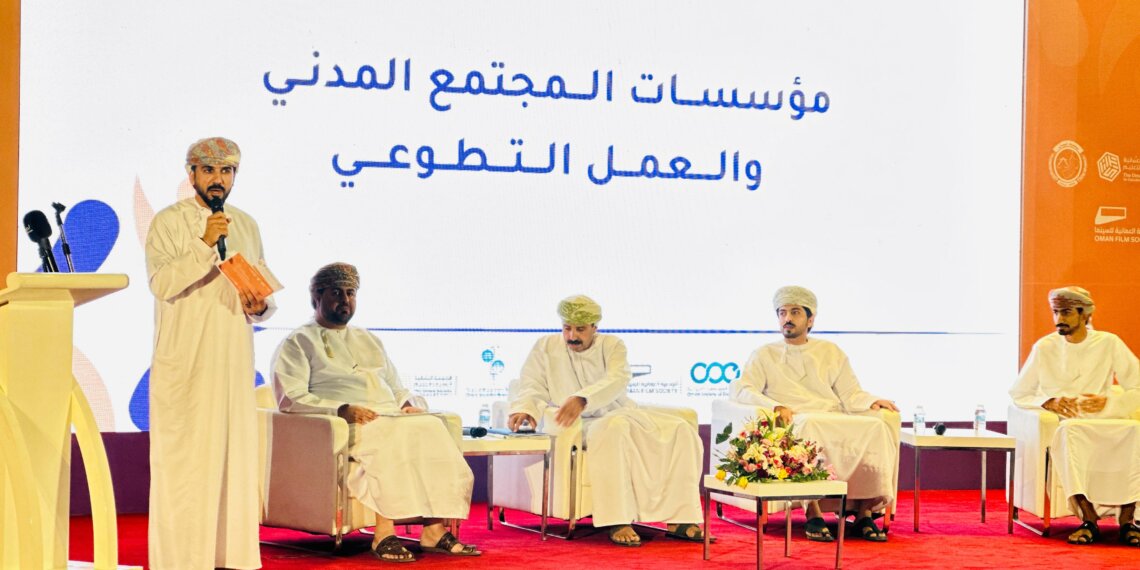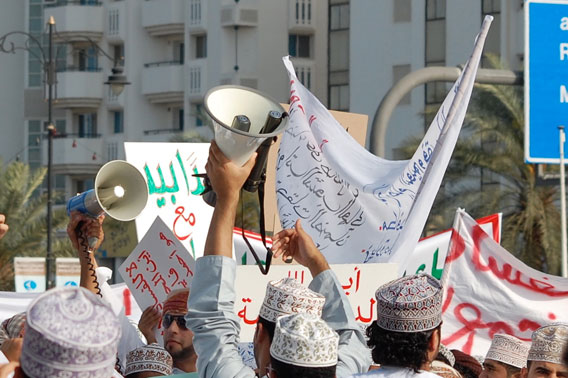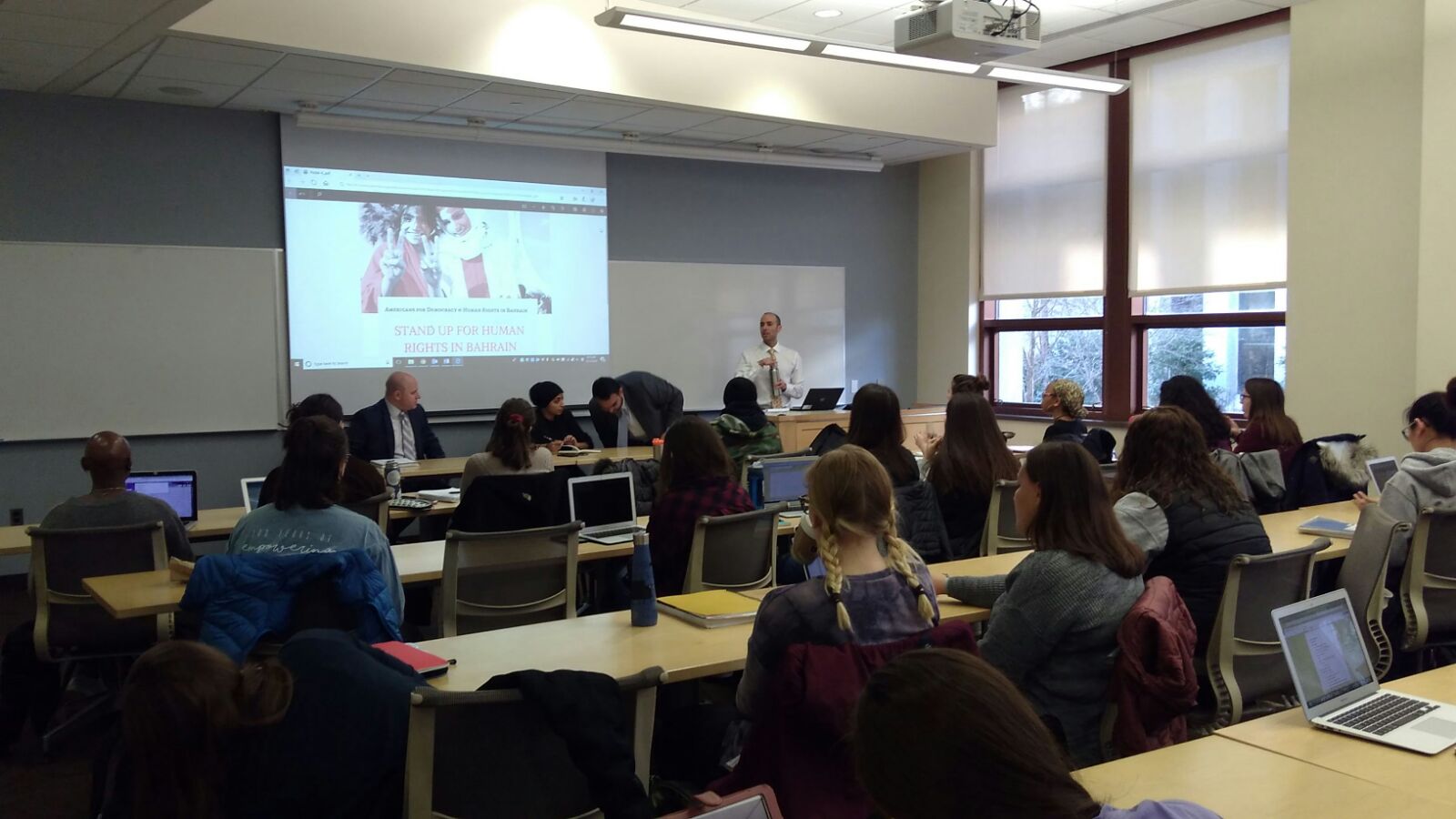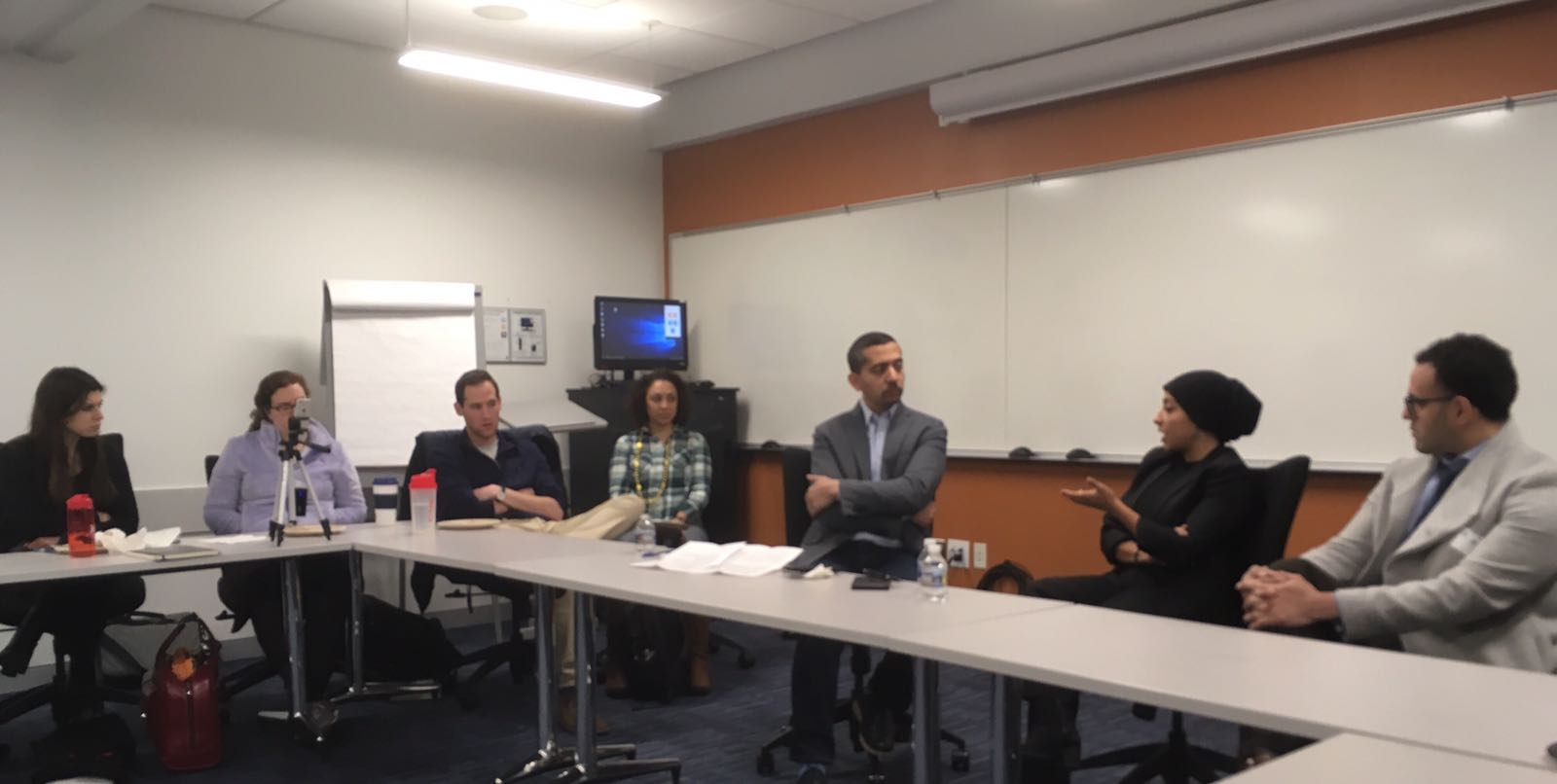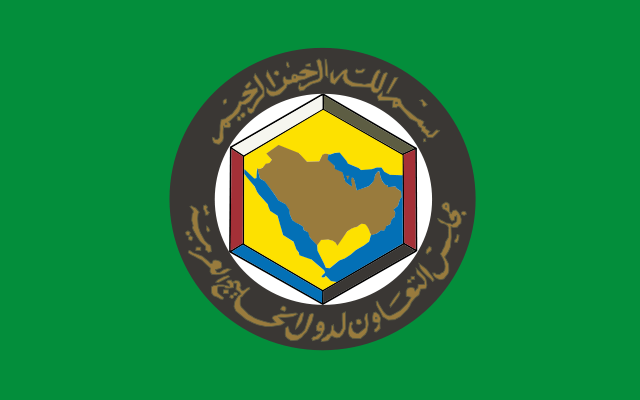Civil societies are an important instrument for protecting human rights, both locally and internationally. In Oman, national laws allow civil societies and human rights nongovernmental organizations to form, yet they also severely restrict their ability to operate. These organizations cannot work independently in Oman as they are tightly regulated by the government. As a result,[…]
Authority forces from the Internal Security Service (ISS) in Oman have been active in targeting pro-reform activists for criticizing the Omani government on social media. After the Arab Spring Uprisings in 2011, Oman intensified the restriction on free expression in the country. Human Rights Watch (HRW) has reported an obvious pattern of repression on[…]
On 13 February 2018, Americans for Democracy & Human Rights in Bahrain (ADHRB) hosted a panel discussion at the American University’s School of International Service entitled “Stand Up for Human Rights in Bahrain,” featuring Husain Abdulla, Executive Director of ADHRB, Michael Payne, Director of Advocacy at ADHRB, and Maryam al-Khawaja, Special Advisor on Advocacy with[…]
On 2 February 2018, marking the seventh anniversary of the Arab Spring protest movements across the Middle East and North Africa in 2011, Bahraini human rights defender Maryam al-Khawaja spoke at the Georgetown University Law Center with journalist Mehdi Hasan and Egyptian activist Mohamed Sultan, addressing the current impact of American foreign policy on human[…]
As the largest country economically and the most populous state in the Gulf Cooperation Council (GCC), Saudi Arabia’s policies significantly affect the policies of its neighbors. Since the 2011 Arab Spring popular protests around the Middle East and North Africa (MENA), Saudi Arabia has used its influence to lead the counterrevolutionary charge, and worked assiduously[…]
- 1
- 2


